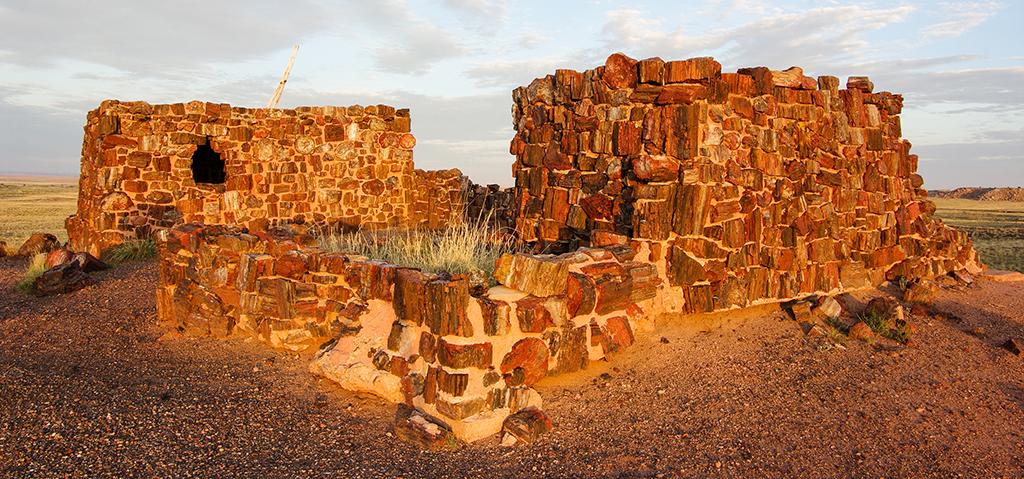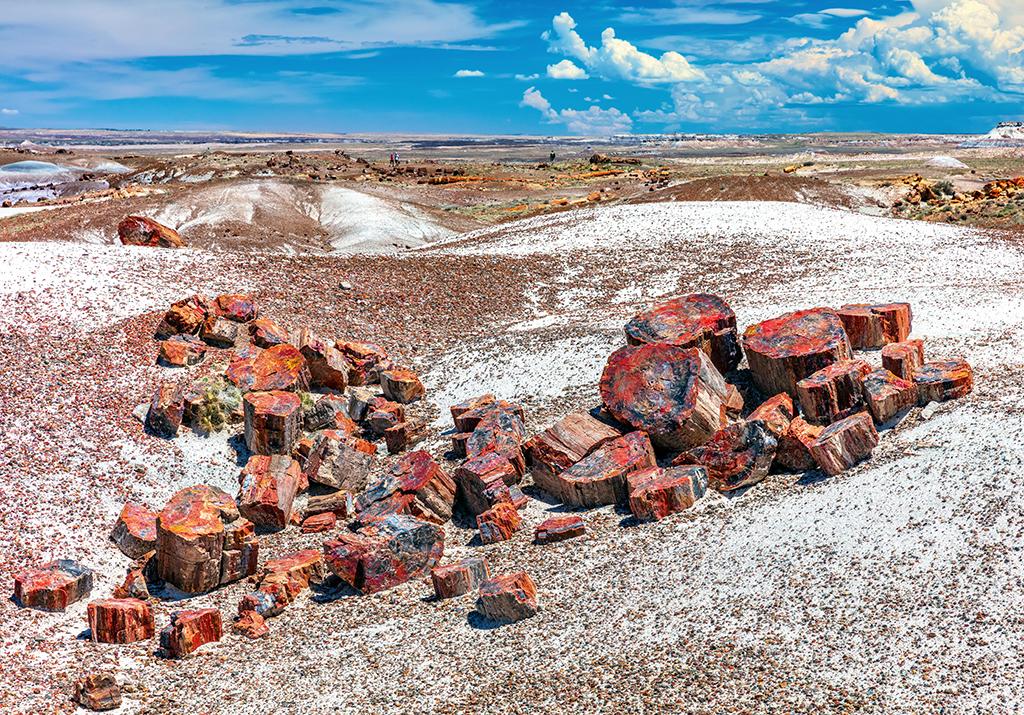To some, Petrified Forest might be one of the most challenging national parks if you're looking to take home a great photograph.

Layered and petrified - the colors of Petrified Forest National Park / Rebecca Latson
Part of the problem is that there are no trees -- well, not alive and upright -- that can provide shade that moves throughout the day and helps add contrast to the sun's relentless position overhead. As a result, the sun glares down upon the landscape with no shadows or depth, providing harsh lighting conditions for photographers.
To others, though, that crystal-clear, arid atmosphere produces amazing colors and clarity, even on a cloudy day, regardless of light and shadow. Although the “golden hours” of sunrise and sunset still rule, this is one of those national parks where the road through the park is generally open only from 8 a.m. – 6 p.m. MST (hours may change seasonally), unless you do a little backcountry camping. So you might miss that golden hour opportunity. You can find the exact hours throughout the year at this page.
How can you get around these issues?
Scout out your locations in advance so you'll know when best to be in place for that spectacular photograph you want to capture. And with the colorful petrified logs and slabs, and the wonderfully tinted badlands, there are some great photographs to capture.
Of course, that will require you to spend more than one day visiting the park: One day for scouting, the next for shooting.
While scouting, you need to keep in mind the image you want to capture. Is it sunrise glinting off the badlands of Blue Mesa, the afternoon sun torching the stony trunks in the Crystal Forest, or either sunrise or sunset illuminating off Agate House?

Golden sunlight bathing the colors of Agate House, Petrified Forest National Park / NPS file
You could scout a location away from the road, near the end of the day, and just leave your camera/tripod setup there, returning the next morning to get the shot. One photographer did that – back in 2011 or 2012. He got the shot. Personally, I would not do that – not nowadays. COVID changed things back in 2019 – 2020 and while visitation to Petrified Forest is less than, say, Yosemite or Yellowstone national parks, more people are visiting the national parks than ever before. Would you really want to risk losing your precious camera gear for a sunrise shot of a trunk of petrified wood held up by a pedestal of soil?
There’s also the challenge of getting a photograph without including your own shadow. It might be a good idea to look at the park map to figure out the sun’s trajectory. Thankfully, there are also new editing tools in Adobe Photoshop tht can help with mitigating that shadow issue.
A good photographer will make the most of whatever light is given them. Sometimes, you might not be able to get out there until the height of the day, when the light is at it’s harshest and there are no shadows or golden rays bathing the already color-saturated landscape.

Midday light over the Crystal Forest Trail landscape, Petrified Wood National Park / Rebecca Latson
Or, it might be cloudy or totally overcast – particularly during the summer monsoons.

Summer stormclouds over Painted Desert, Petrified Forest National Park / Rebecca Latson
Contributing photographer Rebecca Latson stopped off at Petrified Forest National Park for a couple of days and wrote an article about photography there. She offers tips and techniques for what, where, and how to shoot the park’s amazing landscapes.
Photography may be tricky at times – even challenging at Petrified Forest – but who doesn’t like a good challenge? Go on and take your smartphone/point-and-shoot/tricked-out SLR into this colorful park and capture those colors.

Hit the road with your camera and capture those colors in Petrified Forest National Park / Rebecca Latson





